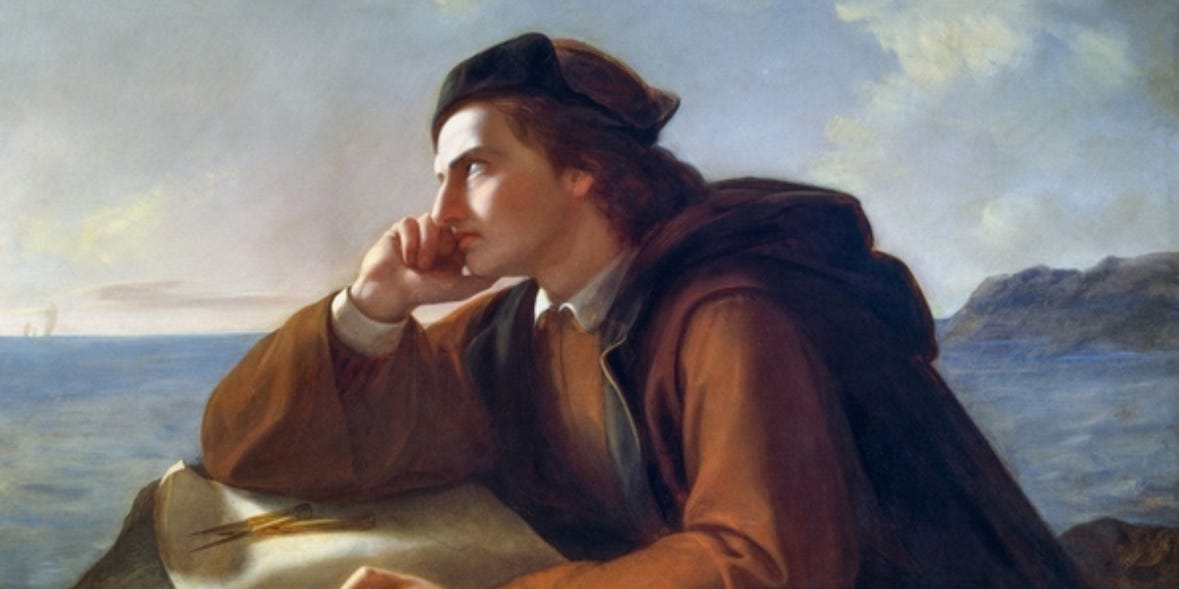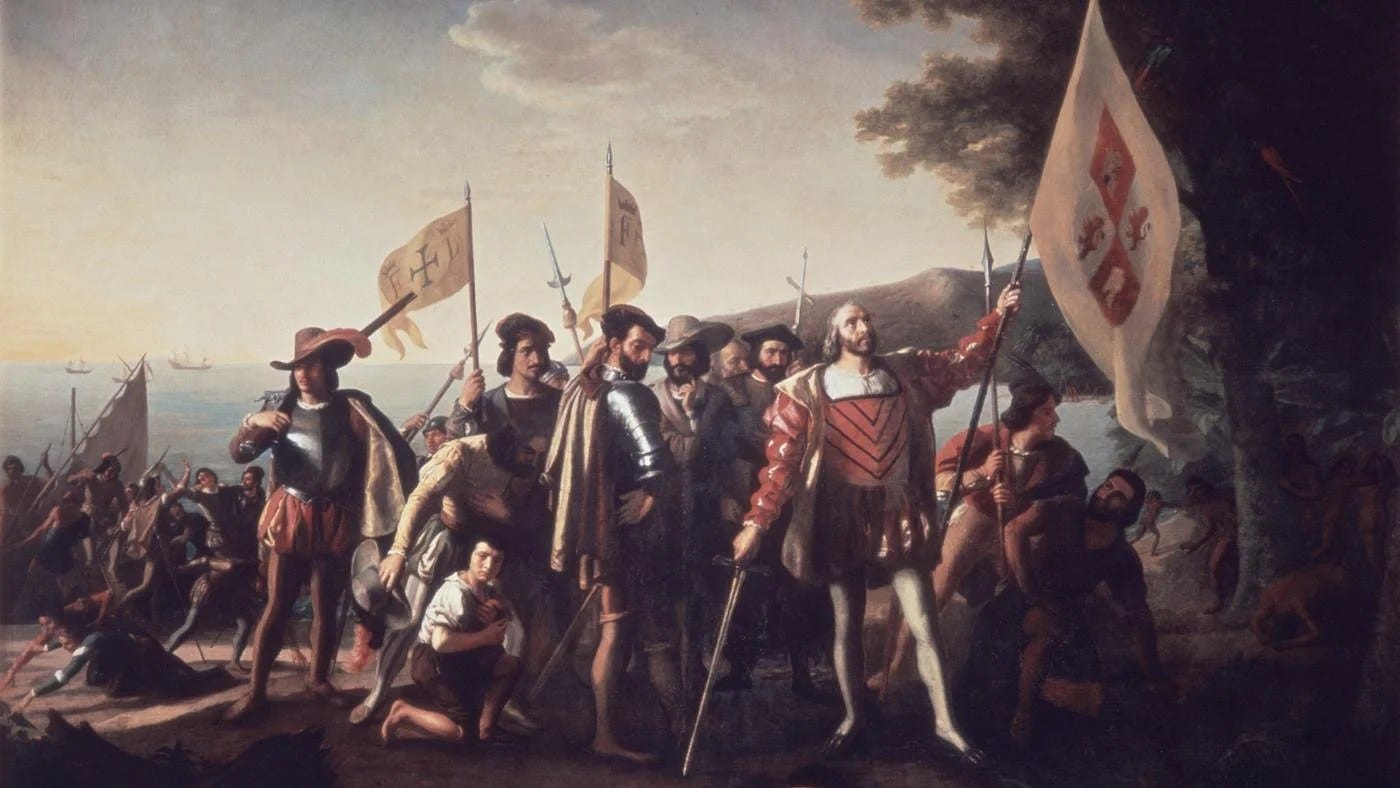“In fourteen hundred ninety-two, Columbus sailed the ocean blue” and discovered a New World—a world where the greatest and freest nation in history, America, would eventually be founded. In an age where practically every historical figure is vilified with every bad name that woke leftists can come up with, I want to remember Columbus’s vital achievement by looking at the very simple but famous poem by Jean Marzollo commemorating his historic voyage.
“In fourteen hundred ninety-two
Columbus sailed the ocean blue.
He had three ships and left from Spain;
He sailed through sunshine, wind and rain.
He sailed by night; he sailed by day;
He used the stars to find his way.
A compass also helped him know
How to find the way to go.
Ninety sailors were on board;
Some men worked while others snored.
Then the workers went to sleep;
And others watched the ocean deep.
Day after day they looked for land;
They dreamed of trees and rocks and sand.”
The men were actually getting restless after 60 days on the water and practically demanding that Columbus turn around his three ships (the Nina, the Pinta, and the Santa Maria—the names of the three ships put together honor the Blessed Virgin; ‘The Painted Girl, Holy Mary’). They thought he was crazy and they were afraid they wouldn’t reach land again before they died on the ocean. But Columbus persevered, and he was rewarded.
“October 12 their dream came true,
You never saw a happier crew!
’Indians! Indians!’ Columbus cried;
His heart was filled with joyful pride.
But ‘India’ the land was not;
It was the Bahamas, and it was hot.
The Arakawa natives were very nice;
They gave the sailors food and spice.”
Columbus was not a vicious murderer of Indians, as he has been depicted. There were men under his command who did bad things, but often it was against his explicit instructions. And some natives were very happy to see potential allies who could help them take on their cannibal enemies.
“Columbus sailed on to find some gold
To bring back home, as he'd been told.
He made the trip again and again,
Trading gold to bring to Spain.
The first American? No, not quite.
But Columbus was brave, and he was bright.”
But even this poem is not really quite fair to Columbus. It doesn’t mention Columbus’s motivation to discover new tribes in order to evangelize them for Christianity, for instance. As previously I wrote on Columbus Day:
“In an article titled ‘Will the Real Columbus Please Stand Up,’ Tad Callister rehabilitates the man so vilified his day has been renamed ‘Indigenous Peoples’ Day’ by President Joe Biden. Columbus was a dedicated Christian, with the ‘conviction that God destined him to be an instrument for spreading the faith [that] was far more potent than the desire to win glory, wealth and worldly honors, to which he was certainly far from indifferent.’ Of course Columbus wanted to be rich and honorable—who doesn’t? [But he also said he wanted gold first and foremost to take back the Holy Land from tyrannical Muslim rule]. . .
Columbus was far more friendly to the natives than moderns would think. Not only that, the explorer treated them as fully human, each with a soul worthy of salvation, an attitude in which even friendly Europeans sometimes fell short. Historian Carol Delaney noted that Columbus made great efforts to befriend the natives of the ‘New World,’ guilty perhaps only of not keeping strict enough tabs on his less-amiable subordinates. . .
King Guacanagari was a native chief who sought the help of Columbus to defeat an enemy tribe of cannibals who were destroying his own tribe. Columbus did assist in this request and sent the captured cannibals as slaves to Spain. . .Columbus then explained his motive for sending these slaves: ‘that they may one day be led to abandon their barbarous custom of eating their fellow-creatures. By learning the Spanish language in Spain, they will much earlier receive baptism and ensure the salvation of their souls’. . .
‘Columbus Day was recognized in 1892 by President Benjamin Harrison as a national holiday to mark the 400th anniversary of the discovery by Columbus. In fact, [the] holiday was recognized in part to address the fierce prejudice, widespread discrimination and the lynching’s [sic] Italian Americans faced in the America of the time’.”
Christopher Columbus was a flawed man, but he was also a man of genius and vision such as few men in history have—and a man who tried, even if he sometimes failed (as do we all), always to rise above the vices and prejudices of his time. Christopher Columbus truly gave us a New World, a world where liberty could spring up and flourish as never before in history, and for that we must be sincerely grateful.1
This article was originally published in 2022.





